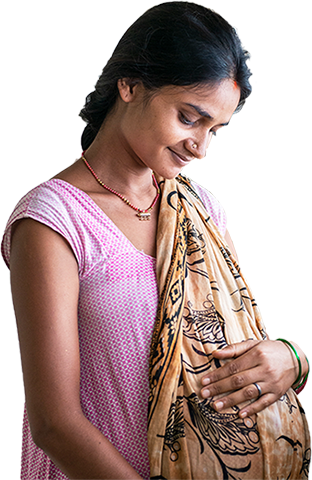
#DONTFORGETMOMS
Of all our inheritance, let’s be most focused on the inheritance of good health. It all starts with a mother—she’s the beginning of a much bigger story.

Of all our inheritance, let’s be most focused on the inheritance of good health. It all starts with a mother—she’s the beginning of a much bigger story.
The certification acts as a stamp of quality ensuring consistent, safe and respectful maternal care for women during and immediately after childbirth.
You can choose the certification best suited for your facility from the three options- Manyata, Manyata+ or LaQshya-Manyata. Details about all options have been provided below:
The facility staff will be trained in 16 clinical standards focused on antenatal, intrapartum and postpartum care in line with the WHO and national guidelines.
On choosing this plan, the facility staff will be trained IN 16 clinical standards and 10 facility standards in line with the WHO and the Health Ministry’s Labour Room Quality Improvement Initiative (LaQshya) guidelines.
If you are a private facility providing maternal and newborn care based in Maharashtra, you are eligible to apply for LaQshya-Manyata certification. The initiative has been rolled out in the state in partnership with the Public Health Department, Government of Maharashtra. Your facility will be trained on 16 clinical and 10 facility standards based on the guidelines issued by Health Ministry’s Labour Room Quality Improvement Initiative (LaQshya) for providers based out of Maharashtra.
less than 20 beds
more than 20 beds
Facilities can opt for additional trainings on facility standards, at the same price.
During the preparation phase, an orientation is conducted on Standard Operating Procedures where necessary tools and resources are shared by our quality improvement expert trainers. Following this, the facility is encouraged to conduct a baseline assessment on standards. The baseline findings are then validated by trainers and an action plan including a roadmap for quality improvement is prepared.
Once the facility completes the orientation process, quality improvement (QI) support is initiated by expert trainers. This will include:

Centralized trainings at master training sites/Centers for Skill Enhancement (CSEs)

3-5 mentoring visits by quality improvement team where rigorous trainings on clinical checklists, skill drills, System Development Procedures are conducted. The team then assesses the hospitals on set deliverables

Virtual trainings through digital platforms – Project ECHO (digital tele-mentoring platform) and Safe Delivery App (Training tool giving health workers instant access to evidence-based and up-to-date clinical guidelines for maternity care)

Digital platform with access to a repository of training modules and all relevant information capturing the facility’s journe
Once the facility is ready, an external assessment is carried out by a qualified FOGSI assessor. The facility is assessed on their adherence to standards. In LaQshya-Manyata, a joint external assessment is carried out by a qualified FOGSI lead assessor and a government assessor.
On passing the assessment, the facility is awarded the Manyata certificate. By getting this certification, the enrolled hospital is recognised for its excellence in maternity care.
In case a facility does not match the expected score of 85% on clinical standards or 65% on facility standards (in the case of LaQshya-Manyata), a short window is generally given to the facility for course-corrections and then the facility is asked to upload evidence of the corrective actions undertaken. Based on the evidence uploaded, the assessor will decide whether the facility is eligible for certification or not.
